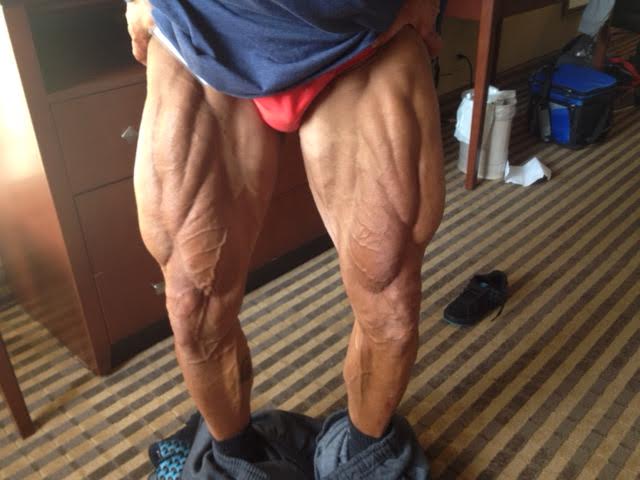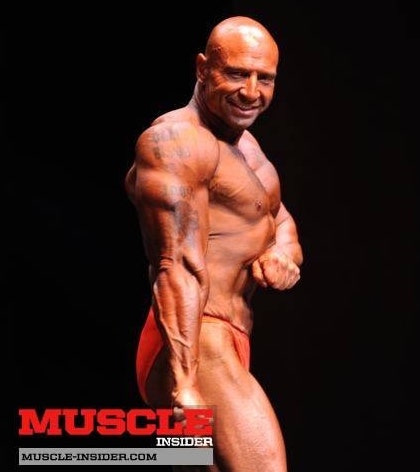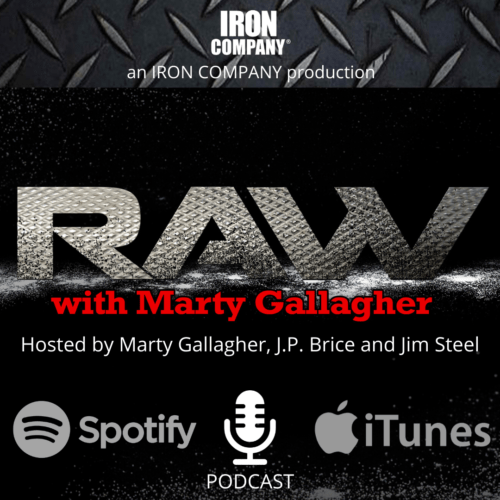
My Competitive Bodybuilding Experience
My Competitive Bodybuilding Experience And What I Learned
Last month, I wrote a Powerlifting article and the ins and outs involved with the training and the competition along with some of my personal stories about the sport. This month, I am discussing competitive Bodybuilding.
I am going to discuss competitive bodybuilding, but if you lift weights for hypertrophy and watch your diet, and want to look muscular and lean, you are a bodybuilder, also, just not a competitive one. Bodybuilding is for everyone, no matter if you compete or not. To me, it is a healthy lifestyle choice.
I have always been a bodybuilding fan, and I collected all of the muscle magazines as a teenager and went to the local shows and hung on Arnold and Mike Mentzer’s every word. I read the magazines from front to back until the covers fell off. I really don't know why I liked it so much, there was just something about having big muscles, training hard in the gym, drinking protein shakes and well, just looking different than all the rest of society. I always wondered, why wouldn't someone want to be muscular? It seemed to me that there was something wrong with them, not the bodybuilders.
I have struggled over the years on how to define competitive bodybuilding. Is it a sport? A hobby? The issue with it being called a sport is that the actual contest is subjective, decided by judges. You have no control over your competition, and although you are competing on who looks best by the judging criteria, you are not trying to beat them in weight total, or beat them in a race, or score a touchdown against them. In reality, the most athletic part of bodybuilding is the training itself. In the end, I’m not sure how to define it, but I will say this, it's one of the most difficult “activities” that anyone can ever be involved in. The competition itself, especially in amateur, is not difficult. You are posing individually for a minute or so, and there are some comparisons with the other competitors, but that is mostly the competition. The training and the diet and the cardio are all done in the months leading up to the show and that is where the difficulty comes in the sacrifice and suffering.
Why is it so difficult? In bodybuilding, unlike most other activities or sports, you are asking your body to train very hard, perform hours of cardiovascular exercise, and do all of this on very low calories. This is counterintuitive to the body because you are not giving it what it wants in the form of energy (calories) and asking it to perform in a caloric deficit.
I have competed in 4 bodybuilding shows; one as a teenager, and three as an adult. In each of the training and dieting for the shows, I have learned more about how my body reacts to training, cardio, and diet. I have learned what foods cause me to retain water, what foods help me retain muscle when pushing the dieting, how much cardio I need at different stages of the preparation for a show, and the optimum training volume for me to go into a show with maximum muscle and minimum fat. In summary, training for bodybuilding shows has made me more in “tune” with my body. I laugh because when I have been deep into a diet, I can eat one food that is off of my diet and see it in my physique the next day. One scoop of peanut butter and the mirror shows water retention. I think this is because your body, after eating the same, wholesome foods day after day and week after week, is sensitive to anything that is outside of what you are eating and reacts by retaining fluid. To an outsider, bodybuilding and all of this suffering and cardio and all of that may seem silly, even crazy. But to me, you are doing something that very few can and will do, and something that is beyond the norm may just seem strange when you are not part of the subculture. I used to get the “Why would you want to do that to yourself?” question all of the time. It's tough to explain when folks don’t understand. I usually just say, “ I like the challenge.” and leave it at that.
When I competed as a teenager, I had no idea what I was doing. I dieted on blueberries and skimmed milk. Seriously. And I went from 218 to 169 pounds in three months. You wanna talk about misery? I was miserable. I was a senior in high school and I was so depleted and fatigued that some days I would just go to my girlfriend's house instead of going to school and sleep until it was time to train. I figured the more that I slept, the less time I was awake and tempted to eat. I did awful in school, and with the severe weight loss, everyone thought that I was sick. I wasn’t; I was bodybuilding. And this was in the 1980s when nobody understood bodybuilding at all. I didn't tell anyone, I just did it. It was my own personal challenge. I finished in second place, and then I didn't think about bodybuilding for a long time, because I was playing football in college and was focused on training for the sport, not for bodybuilding.
Fast forward years down the road, past powerlifting competition, and all the way to October 2012. I remember it like it was yesterday. I was sitting in my office as the strength coach at Penn, and I was talking to my assistant, Cristi Bartlett. We were sitting there after hours, drinking whiskey. I had been drinking too much alcohol and eating like crap and then it hit me: How about a challenge? I blurted out to Cristi, “I think I will do a bodybuilding show.” She was like, what? And then I said it again, which cemented it in my mind. I began dieting the next day and doing cardio. I trained for 9 weeks for that show. I consulted champion bodybuilder Rich Salke who I had known for years, to help me with my diet and to also critique my physique as the weeks went on. Rich had me start out with eating beef and sweet potatoes, about 2 pounds of beef, and a few sweet potatoes. I could have unlimited vegetables. After a few weeks, I switched to chicken. For convenience, I brought frozen bags of already cooked chicken and put them in the microwave. I really went by how I looked and for how Rich thought I was progressing when it came to adjusting food. Every Friday, I would send him pictures and he would tell me if I needed to cut back, or just keep going and how he thought I looked. He also would let me know if I could have a cheat meal or not. I always hesitated to ask him if I could. I'd send him pictures and then wait for his answer. If the reply read, “You look great, Jimmy!” I then would ask if I could have a cheat meal and dessert. I remember the first time that he told me that I could have a cheat meal. My 6-year-old son and I went to a bakery and bought powdered vanilla cream doughnuts and we sat in the parking lot, wolfing them down and giggling with joy, then we went and had a pizza. Rich always stopped the cheat meals at 5 weeks out from a show, but up until that point, Friday night cheat meals were legendary.
I always had tons of weight to lose when I decided to do a show, upwards of 35 pounds or so, so I hit the cardio hard. For the show in 2012, I did 2 hours of cardio daily. For the other shows, it was at least 90 minutes and sometimes more. I prefer the exercise bike, and I just keep a good pace, making sure that I work up a good sweat. Thirty minutes is the minimum for cardio, anything less than that, and (in my mind), the session does not count.
As far as training went, it was pretty basic for all my shows. I'd squat or use a squat machine for my legs and I did tons of dumbbell work for my upper body. Dumbbells helped me more, more fiber involvement, more stretch, and they were easier to handle and safer when training alone. I definitely wasn't against exercise machine work, using cables and some plate loaded machines when available. For my last show in 2019, I used a combination of machines and dumbbells, and free weights and probably was in my best shape for that show. One change I made for the show in 2019 was that I focused on squeezing more. I didn't worry about the weight too much, although it was as heavy as I could lift for the required reps, if I could not control the weight, it was too heavy and I dropped it down. For all my adult shows, I usually performed 15 sets per body part although I only did 10 sets for biceps and 10 sets for triceps, because both of those are smaller muscles. All sets were taken to positive failure and usually focused on controlling the negative also. I usually used 3 different exercises for the 15 sets and 2 different exercises for the biceps and triceps. This was what I usually did, although sometimes I would come in and perform 15 sets of one exercise. I especially enjoyed doing that with bent-over rows, as lat pulls and other back exercises started to get on my nerves after a while.
What I came to realize when training for a show is the importance of diet! It is definitely not some magic supplement that makes a difference. I drank a whey shake (made it thick like pudding) the first few weeks of the diet break-in, but the rest of the time, it was real food. Without sugar and alcohol, my joints felt amazing. Sure, my energy was down because of the lack of calories, but I was clear-headed and alert. Training is important, no doubt, but what I realized was that diet is what most people are lacking and that any deviation from it screws with your body and it takes a while to get it back. Even on the planned cheat meals, I didn't feel right for a couple of days afterward. Your body becomes sensitive to any deviation in the diet. I always liked to eat the same foods every day during a diet. I ate beef, chicken, fish, sweet potatoes and some vegetables. That's it. I drank diet soda, Crystal Light, and carbonated water. That's it. I have plenty of odd ideas when it comes to diet and they are not scientific at all, but I guess you could describe them as superstitions, almost. I have a few nutty ones. For instance, I don't believe that if I eat rice, oatmeal, cinnamon, or white potatoes that I can lose weight. I know it's crazy, millions of people have lost weight using these foods. But for me and many others, dieting is mental. If you are eating foods that you don't believe work for you, I believe that they won't work!
One aspect of bodybuilding preparation that is well known among competitors is the “shuffle” a condition that happens when one is very deep into the diet and is on low, low calories for weeks. You don't have energy for anything, and your walk takes on a shuffling appearance where you don't even want to extend any energy by picking your feet up. A competitive bodybuilder can see it a mile away from another competitor. And man, you can get irritable on low calories. My patience level is non-existent with others. I'm nice to my dog, but that's about it. You really want to be left alone because you know that you are always an inch away from snapping on someone. So how to handle the diet when it gets arduous? Honestly, you have to bathe in the suffering. Get used to it and be proud of it. Tell yourself that this is a choice for you, nobody is making you do it. It's your idea, so shut up and stop complaining. You can choose to look like crap like most of society or you can diet like you are and look totally different than the masses.
It's when you are that deep into a diet that people start to ask you, “Why are you doing this to yourself?” and you really don't have an answer. Because if you step back and look at it, you would probably ask yourself the same thing. Let’s see, I'm eating 1,000 calories a day, doing 2 hours of cardio a day, training with weights 5 days a week, and can barely function, all to stand on a stage in a pair of colored underwear and show off my muscles. But bodybuilders know that it's more than that, it's a feeling of accomplishment when you reach show day, a feeling that few others ever have because you did something that they never could do or would even try to do because they can’t but you can and you did it!.
If you have trained with weights for a while, and you are muscular and want to have a goal to get shredded, sign up for a bodybuilding show. Your training will take on a whole new meaning, I promise you. And you will discover things about yourself that you didn't know existed, like the ability to suffer, how to stay on your diet when everyone around you is eating doughnuts, the ability to push through training and cardiovascular sessions when you are fatigued and it is the last thing on earth that you want to do, and you will also love the way that you look in the end. It's not about being Mr. Bodybuilding champ, it is about the journey and then finishing.
About The Author - Jim Steel
Jim Steel has been immersed in athletics and the Iron Game for most of his life. He has been a college football player and coach, powerlifter, Muay Thai fighter and is currently a competitive bodybuilder. In 1999, Steel was named Assistant Strength and Conditioning Coordinator at the University of Pennsylvania, and moved up to Head Strength and Conditioning Coordinator in 2004. He is the owner of the blog Basbarbell and is a motivational speaker, frequent podcast guest and the author of two books, Basbarbell Book of Programs and Steel Reflections. Steel is a Certified Strength and Conditioning Specialist with the National Strength and Conditioning Association. Jim Steel is co-host of the RAW with Marty Gallagher Podcast along with Marty Gallagher and J.P. Brice and is a monthly content contributor at IRON COMPANY.




